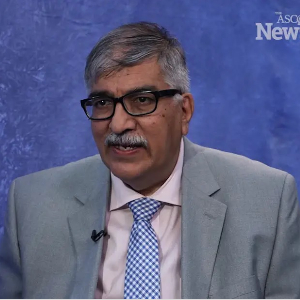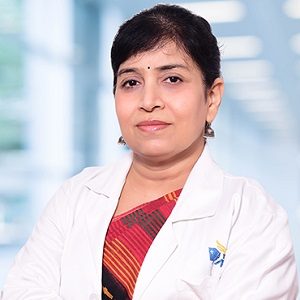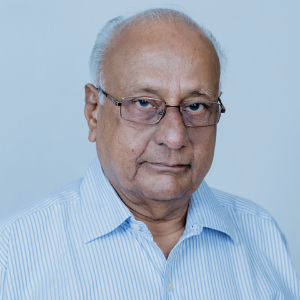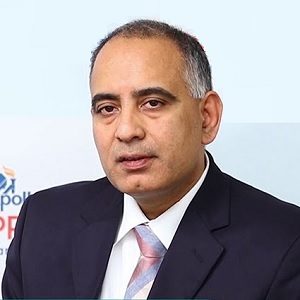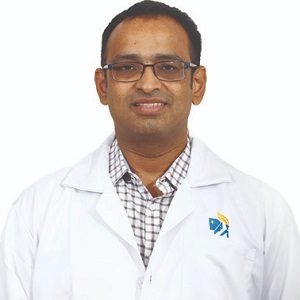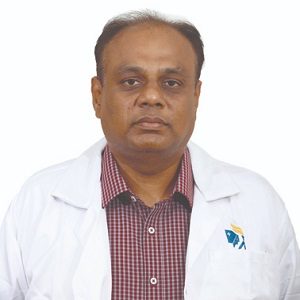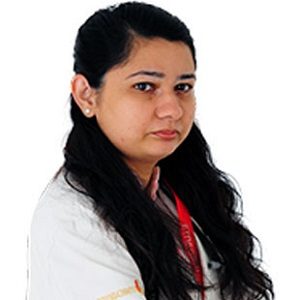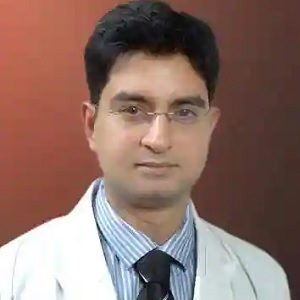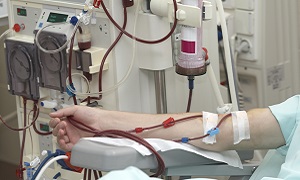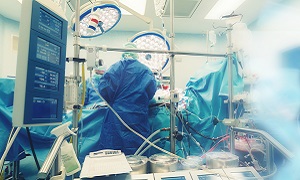Best Doctors in India for Amyloidosis Treatment
- Hemato Oncologist & BMT Specialist, New Delhi, India
- Over 10 years’ experience
Profile Highlights:
- Dr. Shishir Seth is a Hemato Oncologist and Bone Marrow Transplant specialist currently practicing at Indraprastha Apollo Hospital, New Delhi
- He has performed over 200 hematopoietic stem cell transplants successfully of which 40 included allogenic haploidentical transplants and antigen mismatch transplants. He has also performed 300 induction therapies for acute leukemia.
- Dr. Shishir Seth is an expert hematologist and hemato oncologist with an interest in the management and treatment of different blood diseases (benign and malignant).
- With an experience of 10+ years in Hematology and BMT, Dr. Seth has achieved several feats in his career that have gained him immense popularity and recognition.
- Dr. Shishir Seth is involved with research work as well and has numerous publications in his name in national and international journals.
- Director and Head Medical Oncology/Hematology, Gurugram, India
- Over 40 years’ experience
Profile Highlights:
- Dr. Rakesh Chopra is a well-known Medical Oncologist with national and international repute as one of the best in the treatment of all types of blood cancers including leukemia, lymphoma, multiple myeloma, and bone marrow transplant.
- His specialization lies in blood cancer and also provides treatment for solid cancers of the breasts, lungs, prostate, colon, and GI.
- Pediatric Hemato Oncologist, New Delhi, India
- Over 25 years’ experience
Profile Highlights:
- Dr. Amita Mahajan is an established pediatric oncologist in India. She has assisted patients in recovering from health checkups, nutrition consultation for children, Bone Marrow Transplant, diabetes, and childhood injuries.
- Since Dr. Mahajan has expertise in Adolescent Medicine besides Pediatrics Oncology and Hematology, she also offers treatment for Menstrual Disorders in Adolescent Girls.
- Medical Oncologist, Chennai, India
- Over 40 years’ experience
Profile Highlights:
- Dr. Bellarmine Vincent Lawrence is a well-known Medical Oncologist in South India with a specialization in the treatment of breast cancers.
- He provides overall both pre and post-operative treatment of breast cancer that includes diagnostic, therapeutic as well as palliative care.
- He also provides services for other types of cancers including blood cancer and does procedures like Chemotherapy for the treatment and biopsies for the detection of cancer.
- Medical Oncologist and BMT Specialist, Chennai, India
- Over 25 years’ experience
Profile Highlights:
- Dr. T. Raja is a Medical Oncologist from the Tamil Nadu state with 25 years of know-how in this field.
- He has proficiency in Cancer Screening, Chemotherapy, PICC Line Insertion, Bone Marrow Transplantation, Stem Cell Transplantation, Pap collection, lymphoma, Renal Cell Cancer management, and Head and Neck Tumor.
- Dr. Raja was the Principal Investigator for several clinical studies, a published author for journals, and a teacher.
- Hematologist, Chennai, India
- Over 29 years’ experience
Profile Highlights:
- Dr. Prabu P is one of the top hematologists in Tamil Nadu with an experience of more than 15+ years in the field.
- He gained most of his experience working in the United Kingdom and now practices at Apollo Hospital, Chennai.
- Dr. Prabu acquired experience in general and malignant pediatric hematology while working in the pediatric hematology unit of St James University Hospital, Leeds.
- Hematologist, Chennai, India
- Over 25 years’ experience
Profile Highlights:
- Dr. Srikanth M is one of the top Hematologists in Chennai with an experience of 25 years in the field.
- He assists patients with an accurate diagnosis, consultation, and treatment for Hemophilia, Leukemia, Myeloma, Thalassemia, Lymphoma, and other blood diseases. The doctor also offers Bone Marrow Transplant and Chelation Therapy, etc.
- Dr. Srikanth M has completed MRCP from the Royal College of Physicians, London to enhance his skills and received a fellowship from Royal Marsden Hospital.
- Hematologist, Gurugram, India
- Over 10 years’ experience
Profile Highlights:
- After years of practice, Dr. Neha Rastogi has unmatched expertise in diagnosing and treating different kinds of disorders such as anemia, thalassemia, hemophilia, solid tumors, and blood cancers.
- Besides all this, she has the ability to diagnose and treat various primary immunodeficiency disorders as well.
- Being interested in cellular and immunotherapy, Dr. Neha Rastogi works with the agenda of transforming the face of cancer disorders and transplantation.
- Hemato Oncologist, Gurugram, India
- Over 20 years’ experience
Profile Highlights:
- Dr. Nitin Sood is the Director of the Department of Hemato Oncology and Bone Marrow Transplant at Medanta-The Medicity, Gurugram.
- He is an expert in treating patients suffering from lymphoma, myeloma, bleeding and clotting disorders, thalassemia, and aplastic anemia.
Best Hospitals in India for Amyloidosis Treatment
CARE Hospitals, Hyderabad
- City: Hyderabad, India
Hospital Highlights:
- CARE Hospitals were established in the year 2000, by CARE Group.
- The multispecialty hospital has 435 beds, including 120 critical care beds, with an annual inflow of 180000 outpatients and 16,000 in-patients.
- The hospital provides specialty medical services in Cardiology, Cardiothoracic Surgery, Pediatric Cardiology, Pediatric Cardiothoracic Surgery, Neurology, Neurosurgery, Nephrology, and Urology.
- The hospital has the first dual source, 128 slice CT scanner (for high precision cardiac imaging) – the first of its kind in south India.
- The hospital offers a wide range of accommodation facilities for the convenience of its varied patient base, ranging from general wards to super deluxe rooms.
Fortis Hiranandani Hospital, Mumbai
- City: Mumbai, India
Hospital Highlights:
- Fortis Hiranandani hospital was established in 2007.
- The hospital is an advanced tertiary care, multi-specialty hospital equipped with 149 beds.
- The hospital is equipped with a super ICU to provide emergency medical care to critically ill patients.
- The hospital is NABH accredited.
- The critical care facility in the hospital is augmented with the state-of-the-art facilities that facilitate speedier diagnosis and efficient monitoring.
- The hospital provides specialty medical services in cardiology, orthopedic science, pediatric science, neurology, diabetic care, urology, nephrology, ENT, obstetrics, gynecology, cosmetic surgery, bariatric surgery, neuro and spine care.
Fortis Hospital, Anandpur, Kolkata
- City: Kolkata, India
Hospital Highlights:
- Fortis Hospital, Anandapur, Kolkata is a world-class super-speciality equipped with the latest technologies in the medical world.
- The hospital is NABH accredited.
- This state-of-the-art facility specializes in cardiology and cardiac surgery, urology, nephrology, neurosciences, orthopaedics, digestive care, emergency care and critical care.
- The hospital, governed by integrated Building Management System (IBMS), has a pneumatic chute system, for quick vertical and horizontal transportation between floors, facilitating speedy transfer of patient specimens, documents, reports, and medicines to the concerned departments.
- The hospital also has a nephrology department with over 28 advanced dialysis units.
Fortis Hospital Banerghatta, Bengaluru
- City: Bengaluru, India
Hospital Highlights:
- Fortis Hospital Bannerghatta, Bengaluru was established in 2006.
- The hospital is a 276 bedded multi-specialty tertiary care facility.
- The hospital specializes in cutting-edge medical technology and dedicated patient care services.
- The hospital is equipped with state-of-the-art technologies like trans-radial angioplasty, trans-abdominal cardiac surgery, and computerized TKR navigation surgery.
- The hospital provides specialty medical services in cardiology, cardiac surgery, orthopedics, neurology, neuro-surgery, GI, and Minimal Access Surgery (MAS).
Gleneagles Global Hospital, Parel, Mumbai
- City: Mumbai, India
Hospital Highlights:
- Gleneagles Global Hospital The 450-bed facility comprises of 17-stories, housing state-of-the-art infrastructure, and advanced medical care facilities.
- The hospital offers end-to-end clinical, surgical, and diagnostic services. It is equipped with a team of eminent medical professionals aided by qualified nurses and medical staff
- The Hospital offers advanced Endoscopic procedures, Hepatobiliary and Liver Surgeries, Surgical and Medical Gastroenterology, Bariatric Surgery, and Robotic surgery.
- The hospital is a center of excellence for Orthopedics, Joint Replacement, Knee Replacement, and Hip Replacement surgery.
Jaypee Hospital, Noida
- City: Noida, India
Hospital Highlights:
- Jaypee Hospital is the flagship hospital of the Jaypee Group.
- This hospital has commissioned 525 beds in the first phase and has been planned and designed as a 1200 bedded multi-specialty facility.
- It holds the accreditation of the NABH and NABL.
- The hospital has state-of-the-art infrastructure equipped with the latest technologies and modern equipment like 64 Slice PET CT, Dual Head 6 Slice SPECT CT, Gamma Camera, and Da Vinci Robotic Surgery for comprehensive robotic surgical solutions.
- It has special Centers dedicated to the major specialties to provide hassle-free and high-quality clinical care.
Manipal Hospital, Dwarka, Delhi
- City: New Delhi, India
Hospital Highlights:
- Manipal Hospitals, Dwarka, is a super-specialty hospital in Dwarka, New Delhi, which is a part of Manipal Hospitals Group.
- The hospital aims to provide the best treatment on par with international standards at a fraction of the cost.
- Equipped with 380 beds, the hospital is also one of the new age hospitals which are equipped fully with state-of-the-art infrastructure, cutting-edge technology as well as the latest and advanced clinical practices. The hospital also has 13 modular Operation theatres with 118 beds which are solely meant for critical care.
- The hospital comprises internationally acclaimed doctors and highly professional and experienced hospital and medical staff who are able to provide preventive, therapeutic, and diagnostic services all under one roof.
Pushpawati Singhania Hospital & Research Institute, New Delhi
- City: New Delhi, India
Hospital Highlights:
- Established in 1996, Pushpawati Singhania Research Institute is one of the top hospitals in the NCR region, as well as one of the top facilities in India for gastroenterology. The hospital is one of South Asia’s first institutes in medical and surgical treatment for diseases related to digestion.
- The hospital is equipped with state-of-the art facilities coupled with the latest equipment as well as renowned consultants from various parts of India as well as other parts of the world.
W Pratiksha Hospital, Gurgaon
- City: Gurugram, India
Hospital Highlights:
- W Pratiksha Hospital, Gurugram, is one of the best hospitals in the NCR region. It is also a top hospital in India for IVF. Since its inception, the hospital has performed over 5500 successful IVFs. The hospital also specializes in gynecology.
- With over 20 years of experience in providing quality healthcare, the hospital is known as one of the most trusted and valued health providers in India.
- Equipped with world-class medical facilities and advanced technology, the hospital’s doctors and clinicians also have a track record of delivering excellent results. The hospital is also known for focusing on preventive well-being as much as on curative treatment.
- The hospital has earned the trust of its patients, by providing the best available treatments at affordable costs.
Narayana Superspeciality Hospital, Gurugram
- City: Gurugram, India
Hospital Highlights:
- Situated near DLF Cyber City, Gurugram, Narayana Superspecialty Hospital is one of the top medical facilities in the Delhi NCR region, catering to the needs of the people. Known for its commitment to quality medical care and patient service, the hospital is a state-of-the-art facility with planned and well-equipped sections, which includes a spacious OPD area as well as comfortable patient rooms.
- It is the closest super-specialty hospital from Indira Gandhi International Airport towards Gurugram, and also the nearest super specialty hospital from DLF Cyber City. It is also close to major residential areas in Gurugram.
- It is part of the renowned Narayana Health Group. Established in 2000, by Dr. Devi Shetty, a renowned cardiac surgeon, it has grown to be one fo India’s leading healthcare groups.
AMYLOIDOSIS
Amyloidosis is a condition in which an abnormal protein known as amyloid builds up in your tissues and organs. It is a serious health issue, which can lead to even life-threatening organ failure.
Although amyloid is not found in the body normally, it can be formed from other different types of protein. Organs that are affected include the kidneys, heart, liver, spleen, nervous system as well as digestive tract. Some types of amyloidosis also occur as complications of other diseases, and these should improve with treatment of the underlying disease.
Symptoms
In many cases, symptoms are not noticeable till the condition is at an advanced stage. Signs and symptoms are going to depend on which part of your body is affected. Some of the symptoms may include any of the following:
- Swelling of your ankles and legs
- Severe weakness and fatigue
- Unable to lie down in bed due to difficulty in breathing
- Shortness of breath with minimal exertion
- Tingling, numbness or pain in your hands or feet, especially in your wrist
- Enlargement of the tongue
- Unintentional weight loss of over 4-5 kilograms
- Diarrhea, sometimes with blood or constipation
- Irregular heartbeat
- Difficulty swallowing
- Skin changes, such as thickening or easy bruising
If you persistently experience any of the signs and symptoms, associated with amyloidosis, you should see your doctor.
Types, causes & risk factors
Many different proteins exist, which can lead to deposits of amyloid, though only a few have been linked to major health problems. The type of amyloidosis you have is determined by the type of protein and where it collects in your body. The deposits may collect throughout your body or in just one area.
The different types of amyloidosis include the following:
AL amyloidosis (immunoglobulin light chain amyloidosis) – This is the most common type of amyloidosis and therefore is also known as primary amyloidosis. AL stands for “amyloid light chains,” which is the type of protein that is responsible for this condition. The cause is unknown, but it occurs when your bone marrow makes abnormal antibodies that can’t be broken down. It’s linked with a blood cancer known as multiple myeloma. It can affect your kidneys, liver, heart, intestines, as well as nerves.
AA amyloidosis – Previously this condition was also known as secondary amyloidosis. It is caused by another chronic infectious or inflammatory disease which can be rheumatoid arthritis, ulcerative colitis, or Crohn’s disease. It mostly affects your kidneys, though in some cases, it may also affect your digestive tract, liver, or heart.
Dialysis-related amyloidosis (DRA) – This type is generally more common in older adults and people who have been on dialysis for over 5 years. This type of amyloidosis is caused by deposits of beta-2 microglobulin that build up in the blood. Deposits can build up in various tissues, though it most commonly affects the bones, joints, and tendons.
Hereditary amyloidosis – This is a rare form that is passed down through families. It is known to generally affect the liver, nerves, heart, as well as kidneys. There are also several other genetic defects that are linked to a higher chance of amyloid disease.
Age-related (senile) systemic amyloidosis – This is caused when there is a huge deposit of normal TTR in the heart and other tissues. It occurs mostly among older men.
Organ-specific amyloidosis – This is caused by deposits of amyloid protein in single organs, including the skin.
Some types of amyloid deposits have also been linked to Alzheimer’s disease, but the brain is rarely known to be affected by amyloidosis.
Amyloidosis is more common among men than in women. Your risk for amyloidosis generally goes up as your age increases. Amyloidosis also affects around fifteen percent of patients with a form of cancer which is called multiple myeloma.
Diagnosis
Sometimes, amyloidosis can get overlooked as the signs and symptoms can mimic those of more common diseases.
Early diagnosis can help to prevent further organ damage. However, a precise diagnosis is important as treatment is going to vary depending on your specific condition. Several tests can be required which include the following:
Blood and urine tests
Biopsy
Images
Echocardiogram
This technology uses sound waves which create moving images that show how well your heart is functioning. It can also show heart damage which may be specific to particular types of amyloidosis.
Magnetic resonance imaging (MRI)
MRI uses radio waves and a strong magnetic field for creating detailed images of the tissues and organs in your body. These can help your doctor assess the structure and function of your heart.
Nuclear imaging
In this test, tiny amounts of radioactive material, which are also known as tracers, are injected into a vein. This can reveal early heart damage which is caused by certain types of amyloidosis.
Treatment
There is no permanent cure yet known, for amyloidosis. But treatment can help to manage the signs and symptoms and stop or slow further production of amyloid protein. If the amyloidosis has been triggered by another condition, such as rheumatoid arthritis or tuberculosis, then treating the underlying condition may help.
Treatments generally include medications and surgery.
Chemotherapy
Many of the medicines which are used to treat some forms of cancer are used in AL amyloidosis as they might help to stop the growth of abnormal cells producing the protein leading to the formation of amyloid.
Heart medications
Surgical and other procedures
Autologous blood stem cell transplant – In this procedure, your own cells are collected from your blood through a vein. They are stored for a short time while you receive high-dose chemotherapy. The stem cells are then returned to your body through a vein. This treatment is generally appropriate for people whose disease is not advanced and whose heart is not affected much.
Dialysis
Organ transplant
Complications
Amyloidosis can lead to serious complications in the following organs:
Heart – Amyloid reduces the ability of your heart to fill with blood between heartbeats. As less blood is pumped with each beat, this can lead you to experience shortness of breath. If amyloidosis affects the electrical system of your heart, the heart rhythm may get disturbed. Heart problems which are related to amyloid can become life-threatening.
Nervous system – You might experience pain, numbness, or tingling on your fingers. You might also experience numbness, lack of feeling, or a burning sensation in your toes or the soles of your feet. If amyloid affects the nerves controlling your bowel function, you may experience periods of alternating constipation or even diarrhea. If it affects the nerves that control blood pressure, you may feel faint if you stand up too quickly.
Kidneys – Amyloid can harm the filtering system of the kidneys, and this can cause the protein to leak from your blood into your urine. The kidneys’ ability to remove waste from the body gets lowered, which can result in kidney failure and may require dialysis.


